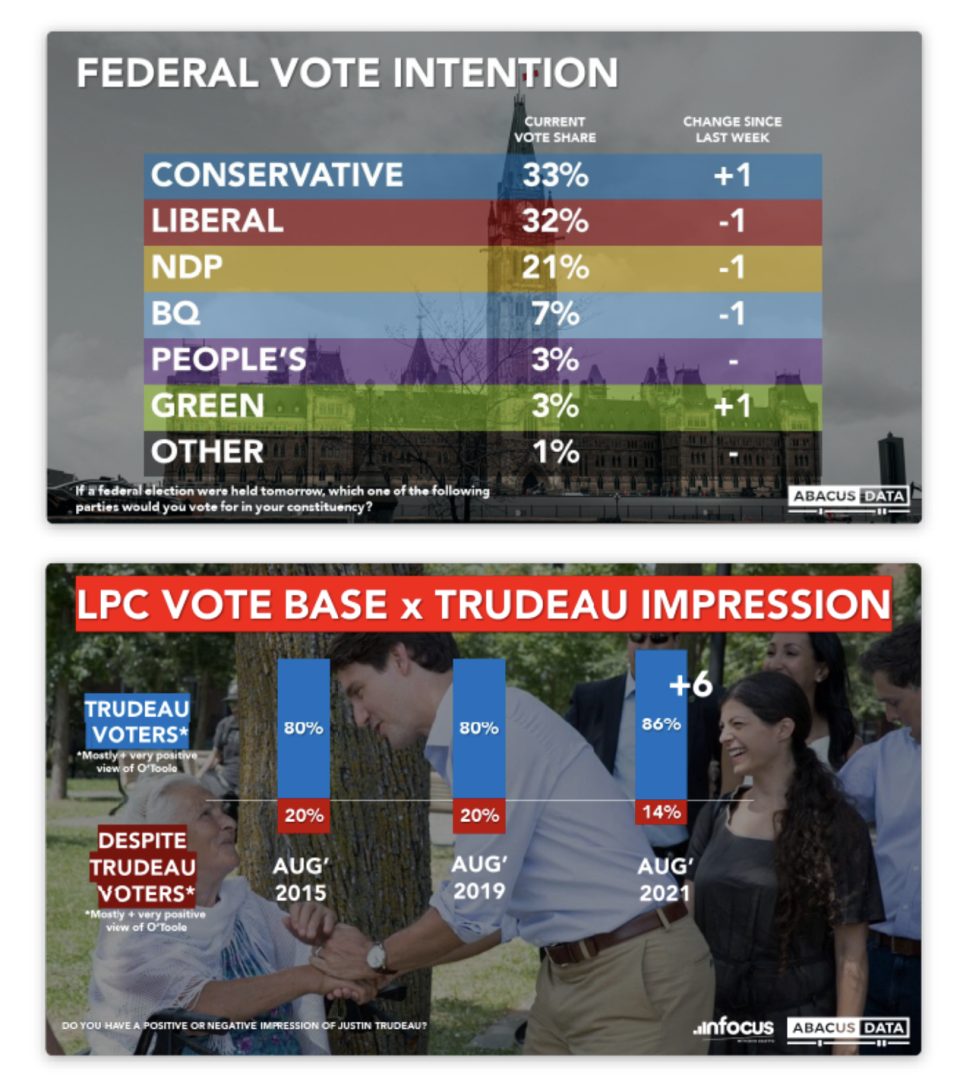Subscribe for more!
Subscribe to our newsletter for insights and articles on wide ranging issues including reputation management, branding, advertising, awareness, advocacy, and communications. You can unsubscribe anytime.
Follow us on social:
Amid a rising 4th wave of COVID-19, the Liberals are again asking Canadian voters to trust the Trudeau brand. In what amounts to a referendum on his pandemic leadership, the election is essentially a two-horse race with respect to who can form government: Trudeau's Liberals and O'Toole's Conservatives.

From Sunny Ways and gender parity to SNC Lavlin and Pandemic weariness, much has changed for Canadians and the governing Liberals since Trudeau took the country's helm in 2015. Amid a rising 4th wave of COVID-19, the Liberals are again asking Canadian voters to trust the Trudeau brand. In what amounts to a referendum on his pandemic leadership, the election is essentially a two-horse race with respect to who can form government: Trudeau's Liberals and O'Toole's Conservatives.
Elections are often imagined as battles of detailed policies, positions, and promises. Recent history and academic research have shown however that more and more voters rely on political brands and leader perceptions to help make electoral decisions. Canada is no different.
A brand is a person's gut feeling based on the sum of all impressions one has had with a person, product, service, or organization.
Whether trying to decide which dish detergent to buy or what smartphone is best; for most, a brand acts as a kind of mental shortcut that helps provide simple answers to sometimes perplexing decisions. The more a brand resonates positively with someone, the more likely brand loyalty is formed (the reverse is also true, with more negative feelings leading to brand aversion), making difficult decisions related to that brand easier and easier. The same tenets and decision-making shortcuts can and do work for politics as well.
In 2015, with the promise of change, politics done differently, and a fresh youthful presence, a heavily brand-focused campaign worked wonders for Trudeau's Liberals, skyrocketing them from 3rd place to a majority mandate all under the moniker of Sunny Ways and 'Trudeaumania' 2.0. However, after six years in power, some voters have become less captivated with Trudeau's star power and perceive him to be long on symbolism and short on action. It is also interesting to see an election being called based on the government's handling of the pandemic when COVID-19 is still very much an ongoing threat.
Although polls are showing erosion of voter intent since the election was called, and Trudeau's rock-star civil servant receptions of the past have been replaced by jeering protests at campaign stops, don't count him or his brand out just yet. Abacus Data has found evidence that Liberal votes have been more about PM Trudeau personally than the party and this connection has built stronger over time. Beyond Trudeau’s personal brand, there's still more opportunity to turn things around with the Liberal platform now released, voters begin to pay closer attention with national leaders' debates and election day fast approaching.


For the Conservatives this election, they've been working hard in showcasing their platform as the best way out of the pandemic, while also portraying a strong brand anchored by Erin O'Toole. This brand-building began over a year ago, with the election of O'Toole as the leader, putting the party in brand refresh mode. With their new leader in place, the party updated their logo, began formulating new approaches and updating policy positions to broaden the party's appeal.
A helpful element to this break from past iterations of the Conservative Party was the perception of O'Toole being far more personable and approachable than the previous leaders. O'Toole spoke directly about his support for LGBTQ rights, his personal stance on abortion, courted unionized workers, all of which have helped to defend against the tried and tested narratives of his opponents.
An interesting visual example of the O’Toole CPC brand separating itself from the past is this election's magazine-style platform cover image choice. Surrounded by bold policy headlines O'Toole ditches typical Hill wear for a more workwear-look of jeans and a t-shirt while looking comfortable enough. Gone are the days of donning a sweater vest to try and relate with the electorate.

Whether O'Toole's Conservative brand continues to resonate positively with the electorate is yet to be seen but, as the leading challenger brand and with the disciplined campaign he has run so far, there is no question it is helping to make the brand more appealing to more voters.